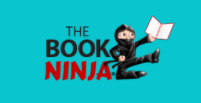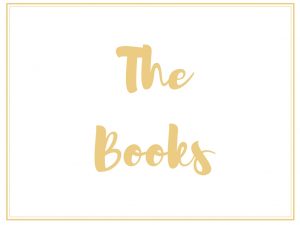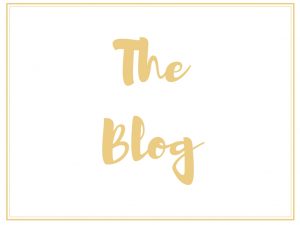Create a Book Title That Sells Your Book For You

What’s in a name? Quite a lot, when you’re an author trying to think of a title for your book. Creating a compelling book title is a vital step for every author, whether you’re self-publishing, pitching an agent, or approaching publishers direct. For self-published authors, picking the right title will help catch reader attention, increase book sales and boost discoverability online. If you’re pitching an agent or publisher, a strong, original title may be just what you need to stand out in their slush pile.

Disclosure: Sometimes my work here (and all around the web) contains affiliate links. Find out what that means here.
Can a great book title really sell a book for you? Not all on its own, of course. You’ll need a great cover to put that title on, a well-written book behind it, and some excellent book marketing to put it in front of your ideal readers. But every avid reader and book browser has probably picked up a book they’ve never heard of before, based solely on the title, so yes, it can certainly help sell your book for you.
Stay flexible on your title in the early days. Publishers will often change the title of a traditionally published book, and if you’re self-publishing you’ll likely find your title goes through a few tweaks as you get ready for publication too. It’s always a good idea to consider feedback from professionals (such as your editor) and potential readers. Never get so attached to your title that you’re not prepared to consider alternatives. If an editor, critique partner, Beta reader, or member of your launch team questions your title, listen to their concerns. It’s easy for an author to become blind to an issue with their book title, once they’ve been working with it for a while.
If you’re struggling to come up with a title during the writing process, it’s fine to give your book a working title and name it for good once it is finished. At that point it may have changed in scope if it is non-fiction, or a title might have presented itself in the meantime. Maybe a phrase in the book will become the final title. This has been the case with everything from classic novels such as To Kill A Mockingbird, through to modern self-help books like Girl, Wash Your Face. Here are some other things you might want to consider when picking a title.
Genre and tone
Before you create your title, get very clear on the genre of your book and the tone you want to set. If your book is humorous, convey that in the title. If it is non-fiction, make sure the title explains what it’s about. There’s a strong trend in non-fiction to give books clever or fun titles, and then explain exactly what the book is about in the subtitle. This can work well if done right, as we’ll discuss below.
In fiction there are certain conventions that readers expect from certain genres, and that applies to titles, as well as story elements. You may have noticed how often fantasy books adopt a similar type of title structure: The Lord of The Rings, A Game of Thrones, The Wizard of Oz. Horror books often use a single word title such as Misery, Frankenstein, or It.
These conventions are certainly not set in stone, and many readers even complain about how unoriginal some genre specific titles are, but it’s a good idea to be aware of them. Ideally you’re looking for a title that’s different enough to stand out, while still conveying a little about the genre and tone of the book, so readers are not in misled or disappointed.
Titles and subtitles
Most non-fiction books have a subtitle that further explains what the book is about. It can be longer and more descriptive than the title itself, and it can include keywords or phrases that it wasn’t appropriate to put in the title. The right keywords help readers searching online find non-fiction books on the topic they are interested in, but it doesn’t always make sense to put a keyword in the title itself.
Novels rarely have a subtitle, but there are exceptions. One common reason for a novel subtitle is to tie it into a series, so you have novels named for example Heirs of Power: Book One of The Constellation Saga or Murder on Edisto: An Edisto Island Mystery. Another common subtitle for a novel is simply ‘A Novel’, sometimes used with books that have a title that could be mistaken for a non-fiction book. Other genres, such as mystery, occasionally have an explanatory subtitle, such as Venetian Blood: Murder in a Sensuous City.
Your competition
It’s a great idea to look at other books in your genre and sub-genre, especially the bestselling ones. Look at the top twenty or so bestselling books on Amazon in the categories your book will fall in, or go to a book shop and browse the entire section on your genre. At this point you’re trying to get a feel for what’s currently working — and selling — for other authors in your genre, especially those covering similar topics.
When researching non-fiction books on success recently, I was struck by how much this genre has moved away from purely descriptive titles to ones with a lot more punch and (sometimes) humor, such as, You Are a Badass, Deep Work, and The Leader Who Had No Title. What the book is really about, however, is still clearly stated in the subtitle. The full titles of these books are:
You Are a Badass: How to Stop Doubting Your Greatness and Start Living an Awesome Life
The Leader Who Had No Title: A Modern Fable on Real Success in Business and in Life
Make a list of books that are similar to yours and study it carefully. Pick out the ones you like that are selling well. With these fresh in your mind, brainstorm ideas for your own book. Then go back to your list of titles. Would your book, with the titles you came up with, both fit in with the genre or topic area, and stand out enough to be noticed? If not, keep brainstorming.
Discoverability
Another important aspect of picking a title for your book is discoverability online. This is particularly relevant with non-fiction, where readers are often searching for books on a particular topic. You want people searching for books on your topic to find your book, so putting keywords or phrases that readers search for in the title is important.
There are two ways to do this. Firstly, you can give your book an extremely descriptive title such as How to Draw Animals or How to Write a Novel. People searching online for those phrases will often find your book, even if they are simply searching for information, and not looking for a book. Alternatively, you can do as the non-fiction authors above have done, and give your book a distinctive and attention grabbing title, then put relevant keywords that readers will be searching for in the subtitle.
Whether you’re writing fiction or non-fiction, you will want to give your book a title that’s easy to remember and easy to search for online. You definitely don’t want to pick a title that’s the same, or even very similar, to another book. There’s technically no copyright in titles, which means it’s not uncommon to find more than one book with the exact same title. There are at least two books called Forever, two books called Possession, and two books called Elsewhere. This isn’t desirable for an author, however. Readers will be irritated when they order the wrong book online, and (even though it’s their own mistake) may even leave a bad review in response.
Naming a book something similar to a very famous book is also inadvisable. While there’s no copyright in titles, you may still be in questionable territory, legally, if it can be proved that you were deliberately trying to deceive readers. It’s always a good idea to check your title isn’t already in use, and pick a different title, even if you’re going for a very descriptive non-fiction title.
Breaking with convention
As already mentioned, plenty of modern non-fiction books have broken with the convention of descriptive titles. The authors have sacrificed clearly conveying what the book’s about in favor of a funny, intriguing, or memorable title. Some acclaimed fiction books have gone the other way and deliberately tried to sound like they’re non-fiction, as with The Girl’s Guide to Hunting and Fishing and A Short History of Tractors in Ukrainian.
There is of course no hard and fast rule that a book has to have a title similar to others in its genre. Breaking with convention can make a book stand out and garner positive attention, but it can also confuse readers. Think carefully about the pros and cons, and seek feedback from potential readers, before straying too far from what’s expected from your genre.
Titles for series
Naming a series of books throws up fresh challenges. It’s common to name a series after a character or group of characters and then include that name in the title, which has worked well for authors from Enid Blyton, with her Secret Seven books, through to J K Rowling with Harry Potter. It is not always possible or appropriate though. Other series adopt similar titles for each book in the series. They may go for a one word title for each book in the series (Divergent, Insurgent, Allegiant), or adopt a similar title structure (A Game of Thrones, A Clash of Kings, A Storm of Swords). As already mentioned, a subtitle can also make it clear that a book is part of a series
With a series, the marketing is important, to make sure readers realize they’re reading books in a series (and which number they’re starting with — ideally the first one), but the titles should certainly have a common theme, structure or character name to tie the individual books in a series together.
There’s a lot to consider, when creating a compelling book title (as if we authors don’t already have enough to think about). So take your time, do your research, and get feedback from your writing communities and potential readers. In one sense, that title might be the most important few words of the entire book.
*****
Want more training on how to market your book like a pro? Check out The Book Ninja. She provides training, courses and free resources for indie authors.
This article was originally published at TheWritingCooperative.com.






Susan Hamilton
March 31, 2019
I am a new author, and reading articles such as this one is very helpful to me. Thank you!
Karen
March 31, 2019
So glad you found it useful, Susan. Wishing you tons of luck on your author journey.